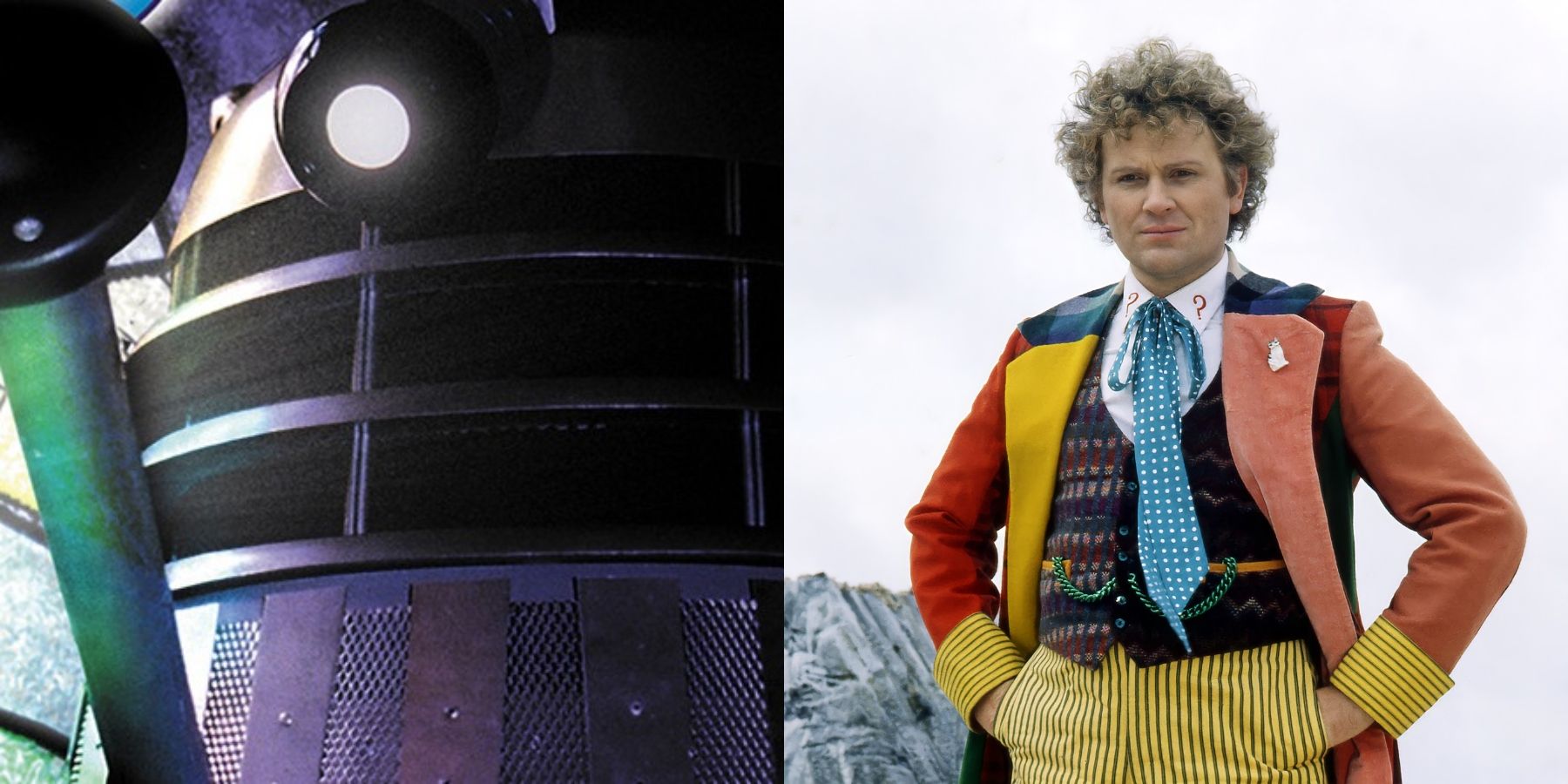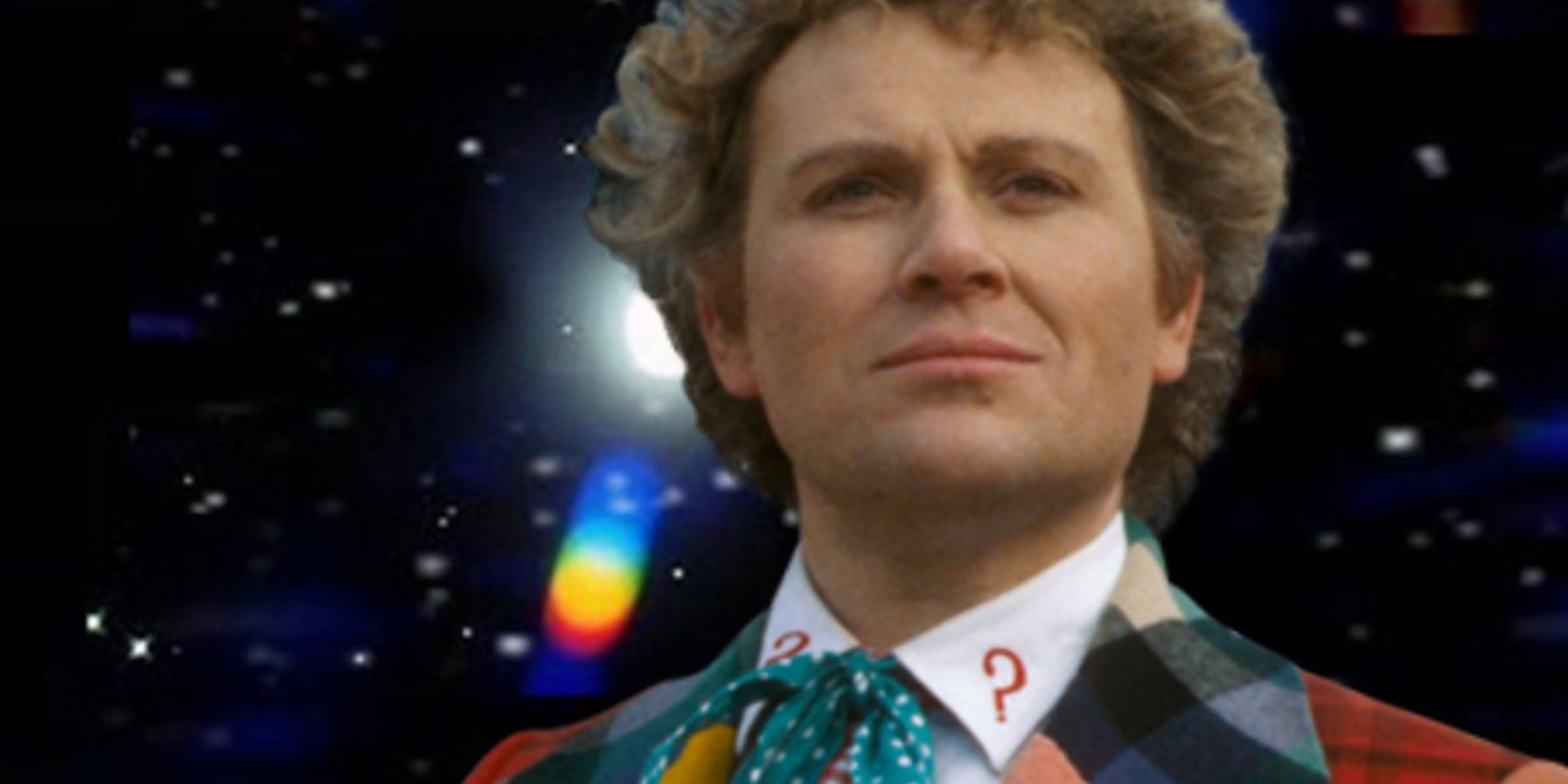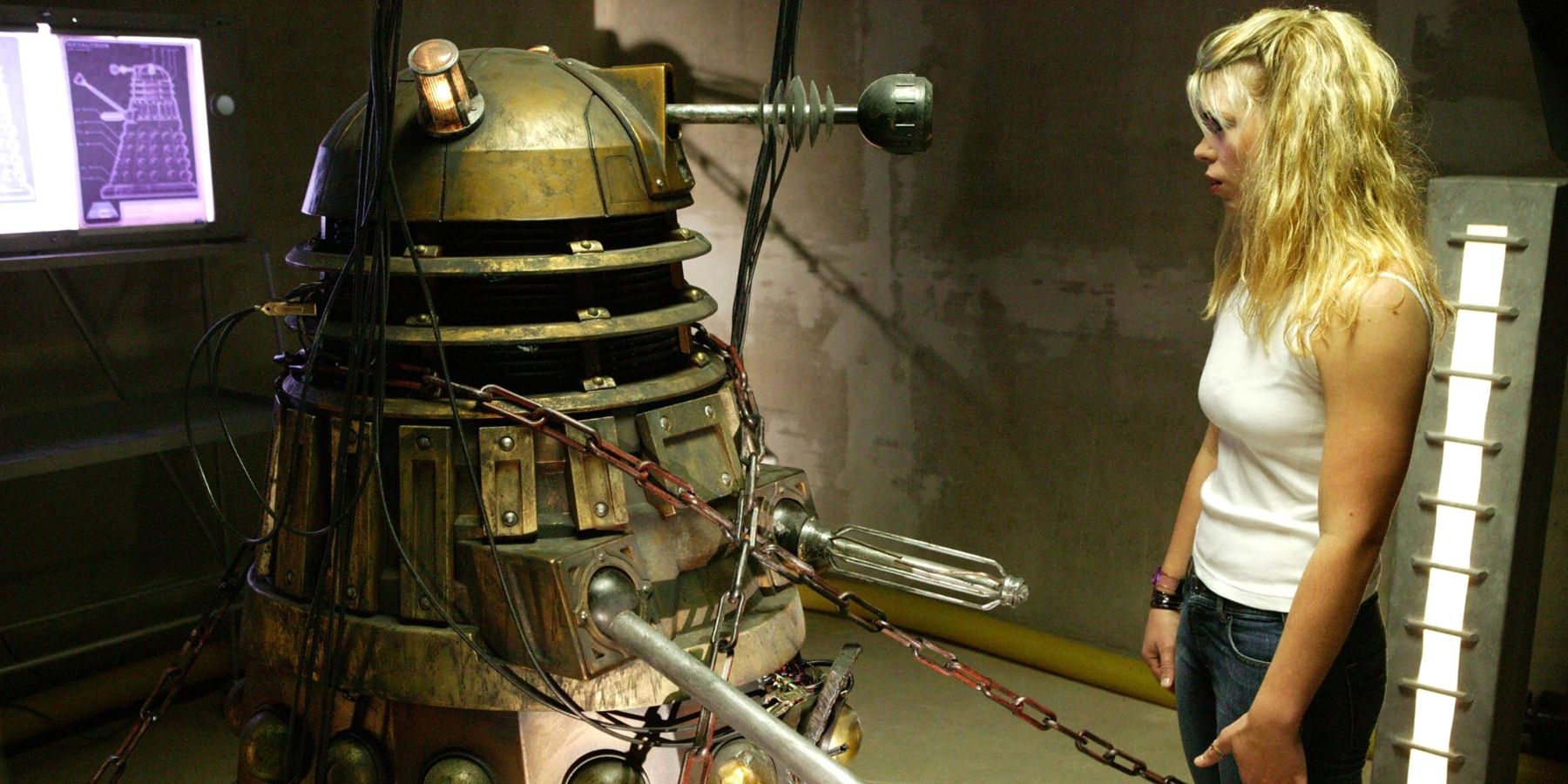Out of all the many villains and monsters featured in Doctor Who throughout the show’s history, none are quite as famous as the Daleks — the cyborg mutants from the planet Skaro with ambitions of universal conquest. Despite their somewhat silly-looking appearance, the Daleks’ best stories have inspired both fear and awe in countless fans.
One of the most beloved Dalek episodes is the aptly named “Dalek” from Series 1 of the show’s 2005 revival: the story that reintroduced the iconic villains to modern viewers. Penned by writer Robert Shearman, “Dalek” has been praised by fans as not just a perfect showcase of everything that makes the Daleks such great villains, but also a potent character study of the Doctor himself. However, the episode also has a larger history that viewers won’t learn just by watching the TV series — it’s directly based on a much older and more obscure story by the same writer, one that’s arguably even better than its live-action successor.
The Forgotten Doctor
After the release of the final Seventh Doctor (Sylvester McCoy) episode in 1989, Doctor Who remained canceled for nearly 16 years, only making a brief return in the form of the 1996 TV movie starring Paul McGann as the Eighth Doctor. The series would of course return in 2005 with Christopher Eccleston as the Ninth Doctor. However, even if the TV series was off the air, that didn’t mean that fans had no new stories to keep them busy in the interim.
Since 1999, Big Finish Productions has released official audio plays based on Doctor Who, and continues to do so regularly to this day. By now, they’ve produced audio plays starring every Doctor from One to Twelve, with numerous actors from the TV series — both classic and modern — reprising their roles. But initially, Big Finish only had three Doctors to work with: McCoy’s aforementioned Seventh Doctor, Peter Davison’s Fifth Doctor, and Colin Baker as the Sixth Doctor.
The Sixth Doctor is one of the wandering Time Lord’s more controversial incarnations. Coming off the heels of the kind-hearted Fifth Doctor, Colin Baker instead provided a more prideful and condescending portrayal, which many fans found jarring. But while the Sixth Doctor was much-maligned in his era, time has been kind to him. Consensus among modern fans is that the problem with Baker’s tenure isn’t the Sixth Doctor himself, but rather the dubious writing and production quality around him. Indeed, Colin Baker’s portrayal proved to be much more popular in the Big Finish audio plays — case in point, “Jubilee”, the story that inspired “Dalek”.
Jubilee of the Daleks
“Jubilee”, written by Robert Shearman and directed by Nicholas Briggs (best known as the modern voice actor of the Daleks and Cybermen), was released in February 2003. The story follows the Sixth Doctor and his companion Evelyn Smythe (a Big Finish-original character voiced by Maggie Stables) as they’re transported to an alternate timeline where the UK is the center of the tyrannical English Empire that has ruled the world since the Dalek War of 1903. Needless to say, something is very, very wrong here.
The Doctor and Evelyn are soon arrested and taken to the ruler of the English Empire, President Nigel Rochester. Once Rochester realizes that this is indeed the real Doctor, he takes his new guests to the Tower of London, where the last surviving Dalek has been imprisoned for 100 years. Broken by a century of torture, the lone Dalek is lost and confused without an empire to give it orders, and is terrified of its impending execution to commemorate the English Empire’s 100-year Jubilee.
Doctor Who fans will immediately recognize some familiar elements to “Jubilee” that Shearman later recycled for “Dalek” — a lone Dalek, the last survivor of a great war, who’s become the prisoner of corrupt humans and sunken into existential dread. But while “Dalek” focuses on the Ninth Doctor’s struggle against his own Dalek-like fear and rage, “Jubilee” instead opts to emphasize the Daleks’ similarities to humanity at its very worst. The story depicts a world where the Daleks are at once humanity’s ultimate scapegoat and their greatest inspiration. While the English Empire is united in its hatred of the Daleks, the invaders from Skaro are also used as kid-friendly, defanged commercial mascots and generic bad guys for schlocky action movies.
Most disturbing, however, are the ways in which the English Empire itself seems to emulate the Daleks. President Rochester seems to admire the Daleks as symbols of ultimate strength and authority, and he frequently interrogates the last Dalek for information on how to expand his control. And indeed, Dalek-like values can be found in every facet of the Empire’s society. Power and violence are praised as virtues, while love and mercy are seen as unforgivable sins — in one twisted subplot, Rochester’s wife Miriam even plots to kill her husband not because he abuses her, but because he doesn’t abuse her enough. In her words, she wants the Empire to have a ruler who “hits hard enough to break the skin”. Another clever tidbit is that Imperial law holds speaking with contractions as an arrestable offense. At first, this seems like a random rule to emphasize how cartoonishly oppressive the English Empire is, but it makes perfect sense when one remembers that the Daleks never use contractions.
The True Enemy
In a climactic scene, the Doctor delivers a speech to the crowd at the Dalek’s execution, condemning them for embracing power and conquest. “The Daleks were genetically engineered to see all other life as a threat… What excuse do you have?” Meanwhile, the chanting crowd — a group of ordinary humans — chants “Exterminate!” with all the hatred and zeal of the Daleks themselves. It’s a strong contender for the most disturbing moment in the entire franchise.
As for the last Dalek, it has an epiphany after observing both Evelyn’s empathy and the English Empire’s infighting. The Dalek realizes that its species’ obsession with conquest will only lead to their ruin — after all, when a regime founded on hate eliminates all potential enemies, that hate will inevitably be turned inward. And so, the lone Dalek chooses its own death in another moment Shearman reused in “Dalek”.
“Jubilee” is arguably the greatest Dalek story in Doctor Who history, despite the fact that the Daleks aren’t even the main antagonists. But by sidelining the Daleks themselves in favor of human tyranny, Shearman constructs a chilling narrative that highlights what made the Daleks so terrifying to begin with. After all, writer Terry Nation originally created the Daleks as an allegory for fascism, and juxtaposing the Daleks against the all-too-real threat of human cruelty only emphasizes the similarities that were always there. After all, authoritarianism and xenophobia aren’t evils exclusive to the Daleks. The true enemy of humanity isn’t any alien invasion, but the fear and hate that lurks in the hearts of ordinary people.
“Jubilee” is available now to be streamed on Spotify, or purchased on the Big Finish website. and it’s worth a listen for any Doctor Who fan. It may not be part of the actual TV series, but it showcases the franchise’s writing at its absolute best.




